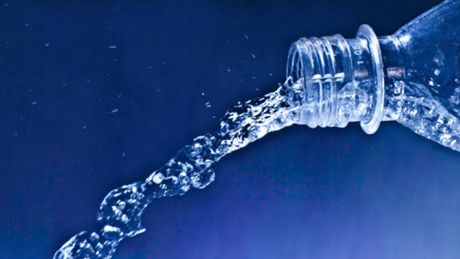
Sign up for workout ideas, training advice, reviews of the latest gear and more.
You are now subscribed
Your newsletter sign-up was successful
One thing that I really struggled with in my first tri was getting my nutrition and hydration right, two subjects Maxifuel nutritionist Sharmain Davis knows all about.
“Obviously you don’t want to be dehydrated during the race, but you don’t want to overhydrate either,” says Davis. “The key is to be aware of how much fluid you’re losing during the race, and take on the correct amount to compensate for it. To do this, you need to measure your fluid levels in training.
“In a triathlon, there are three different disciplines involved, so ideally you should try and weigh yourself before and after a training session for each of them, preferably on separate days, taking into account the temperature and whether you’re training indoors or outside. Whatever weight you’ve lost in kilograms, you need to replace with litres of fluid. So if you run for an hour and lose one kilogram, you need to drink a litre of water. Measuring this in advance will enable you to plan how much fluid you need to consume during each discipline to maintain optimum levels.
“You only really want to dehydrate up to 2% of your bodyweight, as that’s the tipping point where dehydration begins to affect performance. So if, for example, you weigh 100kg, you don’t want to lose more than 2kg of fluid. If you do, you’ll start to feel a lot more fatigued, because dehydration causes your blood to thicken, which makes it harder for the heart to pump it around the body and makes it less effective at transporting carbohydrates to fuel your muscles, which you definitely don’t want!“
Sharmain Davis’s Triathlon Nutrition Plan
The Night Before
“Eat a carb-based dinner, nothing too spicy or fibrous that might upset your stomach,” says Davis.
The Morning Of The Race
“Aim to eat 2g of carbs per gram of your bodyweight – so if you weigh 80kg aim for 160g – starting four hours before the race and finishing 90 minutes before it. You can either spread it out or eat it all in one go, depending on what you prefer. Go for white carbs rather than brown and avoid high-fibre foods so you don’t risk upsetting your stomach during the race. A good example would be four slices of white toast with jam and a glass of orange juice.”
During The Race
“Don’t bother with any energy gels or energy bars till you’ve been going for at least an hour, then take one an hour from then onwards.”
Sign up for workout ideas, training advice, reviews of the latest gear and more.
Between 2010 and 2016, Ben was the deputy editor of Men’s Fitness UK, which predated, and then shared a website with, Coach. Ben also contributed exclusive features to Coach on topics such as football drills, triathlon training plans and healthy eating.

